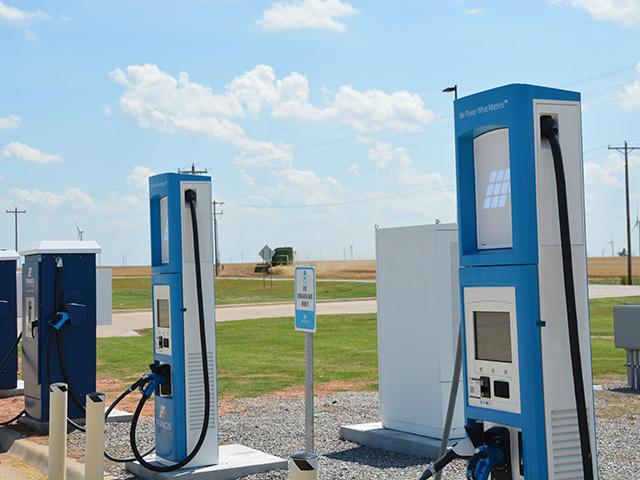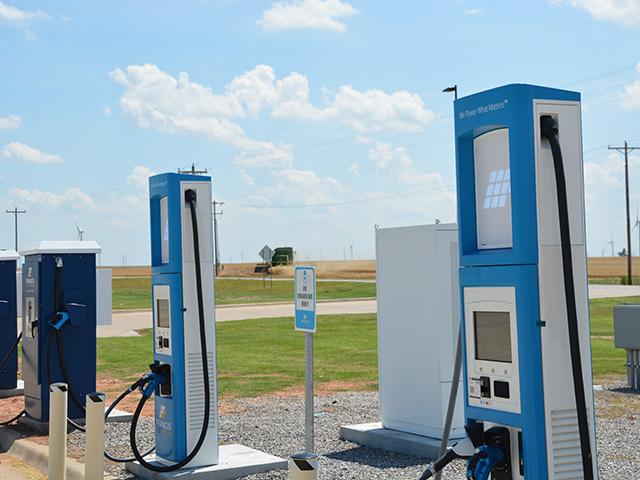Ag Policy Blog
The Build Back Better Vote and Recent History
After sending the Build Back Better bill to the Senate on Friday, House Democrats will be hoping history doesn't repeat itself, while the GOP will count on history at least rhyming.
The House voted 220 to 213 with Republicans unanimously opposed to the $1.75 trillion to $2 trillion spending package, which includes roughly $300 billion for climate projects such as clean energy as well as carbon sequestration in agriculture. House Democrats took that vote with expectations that the U.S. Senate will follow through and match it.
The vote comes 12 years after the House voted 219-212 on a bill in June 2009 meant to expand clean energy and reduce greenhouse-gas emissions nationwide, the American Clean Energy and Security Act. A Democratic-led House passed that bill, then the U.S. Senate failed to take it up. The debate on climate change stalled, and Democrats ended up losing both the House and the Senate in the 2010 mid-term elections. Rural House Democrats were decimated as a result.
So once again, House Democrats have put their faith in the Senate, this time with an even more narrow majority, to pass their social agenda or risk campaign attacks for programs that never make it into law.
For more details on the bill, go to "House Passes Biden Social Agenda" https://www.dtnpf.com/…
In terms of getting the bill through the Senate, White House Press Secretary Jen Psaki said the administration has been working with Democratic senators who have drawn the most attention for potential oppositions, Sens. Joe Manchin of West Virginia and Kyrsten Sinema of Arizona.
"He (President Biden) also knows and recognizes that you need the majority of members in the Senate -- all -- every single Democrat -- to support something to get it across the finish line. And what he looks at -- and I'm not going to prejudge what the outcome is here -- is the totality of -- and this is how the American people look at things -- the totality of packages of what is included," Psaki said.
Psaki and Biden noted concerns over whether paid parental leave will remain in the bill, but they also seemed willing to back a bill without it.
Most critics of the bill on Friday held their powder, recognizing the division in the Senate among Democrats on the bill.
P[L1] D[0x0] M[300x250] OOP[F] ADUNIT[] T[]
Rep. Glenn "GT" Thompson, R-Pa., ranking member of the House Agriculture Committee issued a statement after the House vote challenging the Democrats and "their reckless tax-and-spend agenda."
Thompson added, "Congressional Democrats spent months crafting this massive legislation behind closed doors, ignoring input from the Agriculture Committee, our members, and most importantly, the communities we serve. This bill includes harmful tax increases and billions of dollars in new ideological spending as we face record inflation for everyday Americans and farm families," Thompson said. "Speaker Pelosi and Democrat leadership have now rammed this highly unpopular bill through the House to the detriment of household budgets, American jobs, and our global competitiveness. This will only serve to further isolate rural America and compromise those values that make our country so great."
Thompson, though, also had voted against the bipartisan infrastructure bill earlier this month despite what those investments could do to increase global competitiveness for agriculture.
National Corn Growers Association highlighted that the group worked with other farm organization to ensure the bill did not change stepped-up basis for farmers.
"Our number one concern has been proposals to remove stepped-up basis," said Iowa farmer and NCGA President Chris Edgington. "That will continue to be our focus as the legislation moves to the Senate."
NCGA also highlighted the funding programs in the bill for conservation, including $9 billion for EQIP, $7.5 billion for the Regional Conservation Partnerships Program and $4 billion for CSP.
The National Sustainable Agriculture Coalition said pointed to the overall funding for agriculture in the bill, roughly $90 billion for conservation, forestry, rural development and nutrition programs.
"In the face of a changing climate, extreme weather events impacting farmers and ranchers, and significant supply chain disruptions impacting the food system nationwide, these investments are long overdue. We urge swift action by the Senate to get this crucial legislation passed with agricultural spending intact, to help build back a resilient food and farming system and confront the climate crisis."
Whit Fosburgh, president and CEO of the Theodore Roosevelt Conservation Partnership, said sportsmen and women would benefit from provisions in the bill. Fosburgh said the bill includes "transformational investments in public and private land, climate resilience, and habitat connectivity would provide direct benefits not only to at-risk landscapes but also to our economy--with specific impacts on outdoor recreation businesses and family farms, ranches, and forests."
Fosburgh added that the country "can and should debate the merits of congressional spending, but the return on investment from conservation has been proven time and again. And this bill recognizes the critical role of private landowners in addressing climate change through practices that also benefit fish and wildlife and water quality. We look forward to working with both chambers to ensure that fish and wildlife benefit from once-in-a-generation investments in our natural resources, rural economies, and climate resilience."
Agriculture Secretary Tom Vilsack, plugging the bill for his boss, said the bill provides an "opportunity to rebuild the physical, natural, and human infrastructure of our nation." Touching on the current inflationary concerns, Vilsack added the bill's investments would lower costs, reduce taxes and ease inflation.
"The Build Back Better bill is the largest effort in American history to combat the climate crisis and includes a focus on climate smart agriculture," Vilsack said. "Agriculture can lead the way in the fight on climate with climate smart agriculture and forestry practices that sequester carbon, reduce emissions and create new and better market opportunities for producers. With significant investments in resources for farmers, ranchers, and forestland owners, this bill provides a host of new tools to deploy important conservation practices and the research essential to inform them. The Forest Service will gain long overdue and significant resources to aggressively manage our forests, reduce fire risks, and keep impacted communities safe."
Chris Clayton can be reached at Chris.Clayton@dtn.com
Follow him on Twitter @ChrisClaytonDTN
(c) Copyright 2021 DTN, LLC. All rights reserved.






Comments
To comment, please Log In or Join our Community .